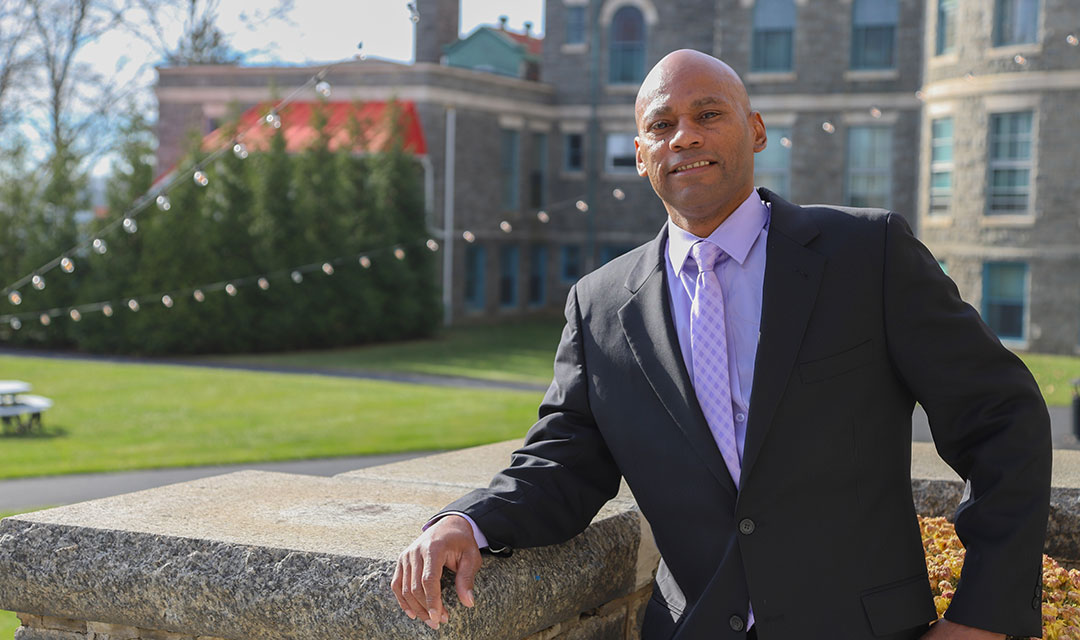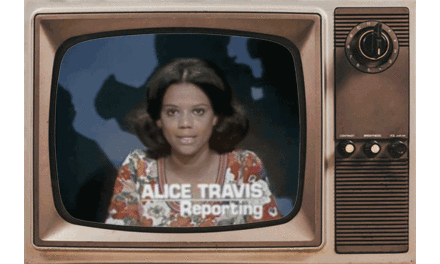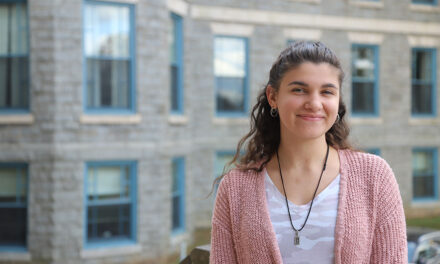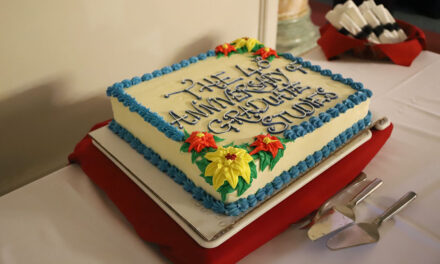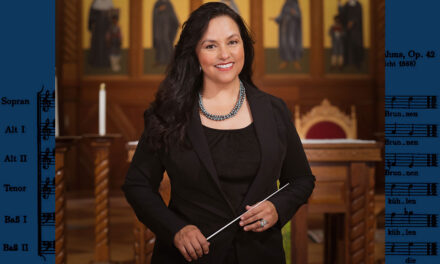By Allison Duncan
Kendall Reese ’15 M.A. grew up in generational poverty, one of six children raised by a single mother in Philadelphia’s public housing. He witnessed so much violence in his neighborhood and so many deaths that he became desensitized.
“As a kid, I kind of lost emotion,” he said. “A lot of my core issues came from being stuck in deep poverty and being depressed as a result of it.”
As a teen, Reese found a mentor in a neighborhood basketball coach, who affirmed his potential but warned him not to skip school and waste his talent. “Mentally, I was messed up. I was always getting into trouble,” Reese said. “The streets started taking over. … When you’re poor, and you’re hungry, and somebody gives you an opportunity to make some money, sometimes you don’t stop to ask, you just do.”
Reese spent a few years in prison in the 1980s for a felony drug charge. “When I came home, I didn’t care if I lived or died,” he said, noting that the life expectancy for Black men from his neighborhood was 25, and he was 20. “I had death or jail to look forward to.”
But Reese reached a turning point when his mother, dying of cancer, asked him to promise to go to college. He signed up for community college and chose to study behavioral health. Reading a textbook helped him realize he was depressed and had experienced trauma, which allowed him to begin changing his thoughts and improving his mental health.
“What good can I do with this?” he wondered. “I can help other people like me.”
Reese earned a bachelor’s degree in psychology from Philadelphia University, and like his mentor, he began serving kids through coaching basketball. Young people looked up to him, he said, and saw how he pivoted away from his former life by educating himself and volunteering.
“I reach the kids through sports, because that’s one of the things that helped me. Basketball keeps kids out of trouble.”
Kendall Reese
A grant helped Reese earn a master’s degree in counseling psychology from Immaculata, which strengthened his analytical and helping skills. He enjoyed learning about different psychological diagnoses as well as therapeutic tools to help people move forward, such as cognitive behavioral therapy and reality therapy. These frameworks help clients focus on the thoughts and behaviors they can control, helping them make better choices to meet their needs and achieve goals.
Reese remembers a course on diversity that confirmed the challenges he had seen in his mostly Black, low-income neighborhood and that he experienced firsthand. “It’s different for people of color than it is for white people,” he said, mentioning high rates of hunger, disease and violence. During his graduate studies, he went to a funeral almost every weekend. Most people who live in an environment of poverty are going to fail, he said.
Despite having a master’s degree and a strong history of volunteerism, Reese struggled to find employment because of his decades-old felony record. He turned to construction, where he could work for himself. Finally, in 2021, he spoke to a panel of judges, telling his story of personal transformation and community service over 30 years, and obtained a pardon.
Reese is continuing his service by providing therapy and practical support as a volunteer with the Supervision to Aid Reentry (STAR) Program, which helps formerly incarcerated people transition back into society. Some of these people face unique challenges, Reese explains, because they come home after a decade or more and have to find housing and employment, reacquaint themselves with their families and sometimes learn to use technology that didn’t exist before their prison term. Reese said they may have to pay restitution, “even though nobody’s going to hire you, which causes more stress, which sometimes causes people to say, ‘All right, I’ll take the drug dealer job.’”
Reese brings compassion and wisdom to his work with members of the STAR Program. “It helps to talk to somebody who understands, who’s been through it and can give you some direction.” He points people to the STAR Program’s closet of free professional attire that they can wear to job interviews, and he advises them to volunteer to get something on their resumes. He offered a job in his construction business to a formerly incarcerated man who is training as an excavator, and he plans to hire, train and mentor more people he meets through the STAR Program.
“It helps to talk to somebody who understands, who’s been through it and can give you some direction.”
Kendall Reese
In addition to serving adults, Reese volunteers with youth in the Philadelphia Juvenile Justice Services Center, offering them tips from cognitive behavioral therapy to help them feel empowered to change their thinking and behavior. Then he builds relationships with them through playing basketball and having conversations, where he identifies with them, assesses what they need and offers them hope from his own story of growth.
Reese also leads basketball leagues in his neighborhood to help young people avoid ending up in detention or prison. “I reach the kids through sports, because that’s one of the things that helped me,” he said. Giving youth his attention and building their confidence and self-worth changes their trajectory. “The majority of them, they gravitate away from the street stuff because of the coaching,” he said. “Basketball keeps kids out of trouble.” He hopes to get a gun violence prevention grant from the city to reach more young people and promote safer streets.
In 2016, Reese established a nonprofit, Honor Thy Neighbor, whose mission is “breaking the cycle of deep generational poverty using a holistic approach.” He advocates for education, counseling, job training, socialization and spirituality as part of a comprehensive framework for overcoming poverty and preventing violence.
Reese is working to scale up the nonprofit through finding grants and partners to help him offer “a one-stop shop.” Unlike outsiders whose proposed solutions may be less informed and ineffective, Reese stresses his personal knowledge of poverty and violence, his ability to relate to the community he serves and his hard-won success with the help of supportive mentors, education, better mental health and employment. “We can take all these different things and put them together, which helped me break the cycle,” he said.

